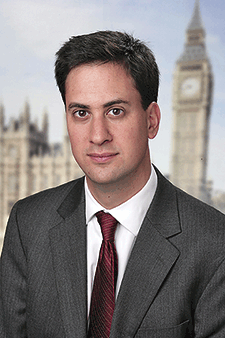
China is to blame for the poor progress made during the Copenhagen climate change talks, Ed Miliband said today. In the most direct attack on the country to date, the Secretary of State for Energy and Climate Change accused China of hijacking the summit.
He claimed that Beijing “vetoed” moves to give legal force to the accord and blocked an agreement on global reductions in greenhouse emissions. Its delegates even blocked attempts by advanced industrial countries to set a target of an 80 per cent reduction by 2050 for themselves, even though China is classified as a developing country.
Mr Miliband said: “Some leading developing countries currently refuse to countenance this.
“That is why we did not secure an agreement that the political accord struck in Copenhagen should lead to a legally binding outcome.
“We did not get an agreement on 50 per cent reductions in global emissions by 2050 or on 80 per cent reductions by developed countries.
“Both were vetoed by China, despite the support of a coalition of developed and the vast majority of developing countries.”
China was one of the few countries to praise the final agreement. Yang Jiechi, the country’s Foreign Minister, said: “Developing and developed countries are very different in their historical emissions responsibilities and current emissions levels, and in their basic national characteristics and development stages.
“Therefore, they should shoulder different responsibilities and obligations in fighting climate change. “The Copenhagen conference is not a destination but a new beginning.” Gordon Brown said today that the talks were “at best flawed and at worst chaotic” and called for a reformed UN process. The Prime Minister added that he could not hide his disappointment with the deal made at Copenhagen.
“Never again should we face the deadlock that threatened to pull down those talks; never again should we let a global deal to move towards a greener future be held to ransom by only a handful of countries,” he said.
“One of the frustrations for me was the lack of a global body with the sole responsibility for environmental stewardship. “I believe that in 2010 we will need to look at reforming our international institutions to meet the common challenges we face as a global community.”
David Cameron described the summit as disappointing. “We should be thankful for the small things that have been achieved, like the 2C limit on temperature rises and the good work on rainforests,” he said.
“But it’s disappointing overall because there are no carbon reduction targets, the details on help for poorer countries to tackle global warming are vague and it’s not a legally binding treaty. “We need now to step up the work to get that done.”
Lessons should be learnt from Copenhagen about how to make the machinery of international talks work better, he added.
“I think we need better and different and more rigorous machinery to get countries together and to get the preliminary work done first,” he said. “We need to get the Sherpas to do more before they get to the summit.”
China is pleased with what it sees as its constructive role at the Copenhagen climate change talks. Officials have clearly chosen to ignore the international criticism — particularly from Britain — that is being heaped on Beijing for effectively vetoing a stronger deal.
At the forefront of Beijing’s campaign to create its own reality about what took place in Copenhagen was Premier Wen Jiabao, the official who attended the talks and who was the prime mover in watering down the final statement. China had played an important and constructive role, he said.
The People’s Daily, which is closely aligned with the ruling Communist Party, said China would treat talks on a binding global climate change pact in 2010 as a struggle over the “right to develop”.
Liu Junhong, of the China Institute of Contemporary International Relations,said that Beijing was resuming the role it played in the 1960s as self-proclaimed leader of the developing world. The stands taken by participants at the talks had “again intensified the North-South contradiction”, he wrote.